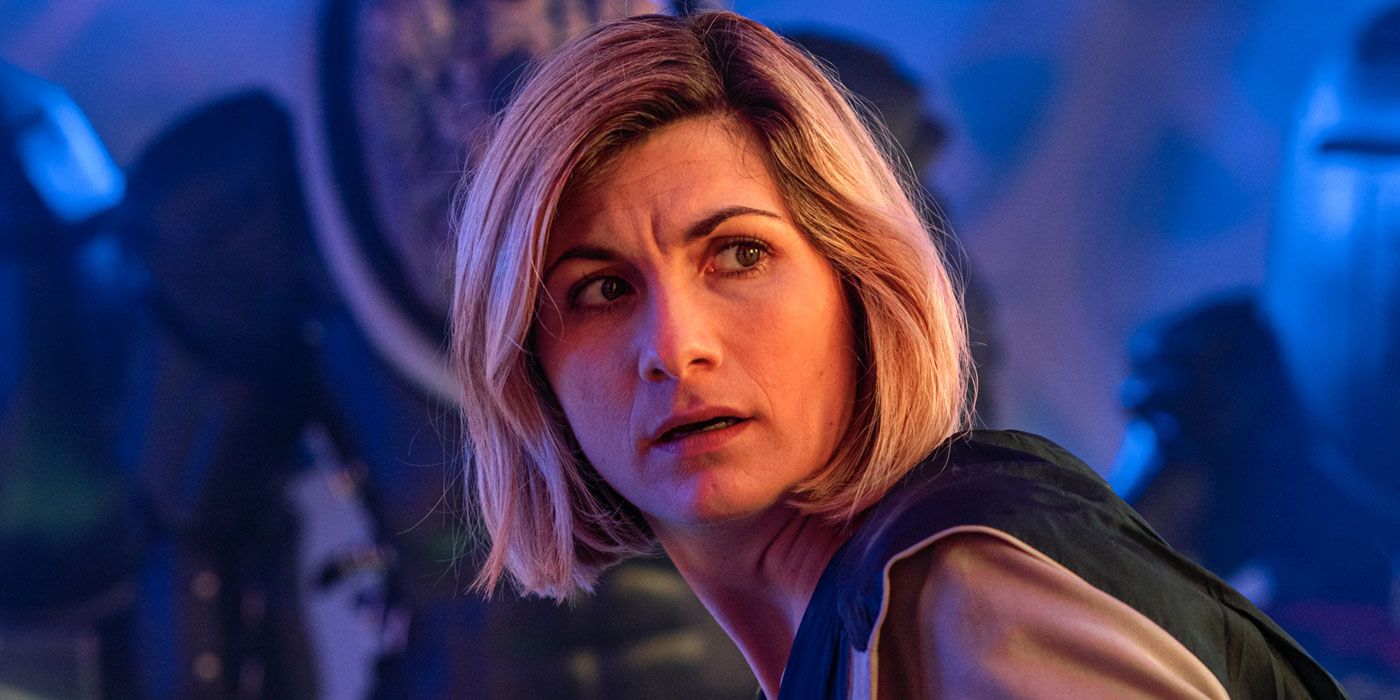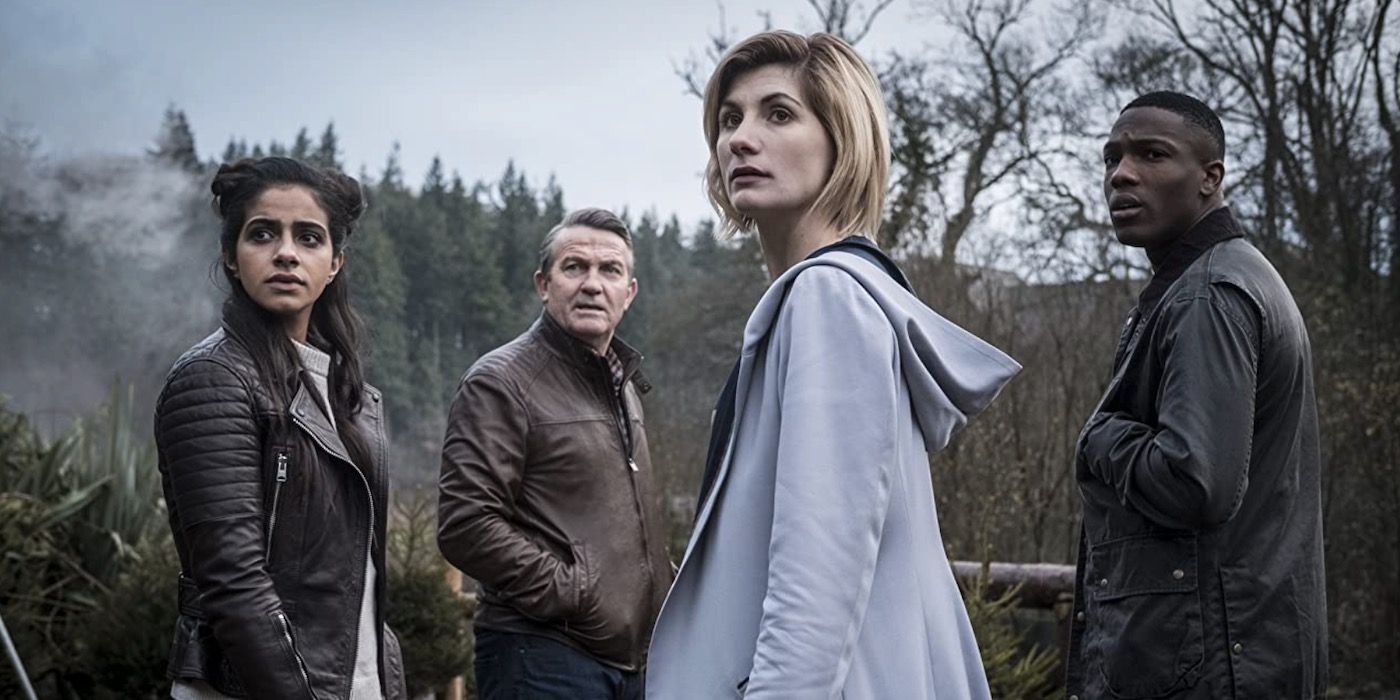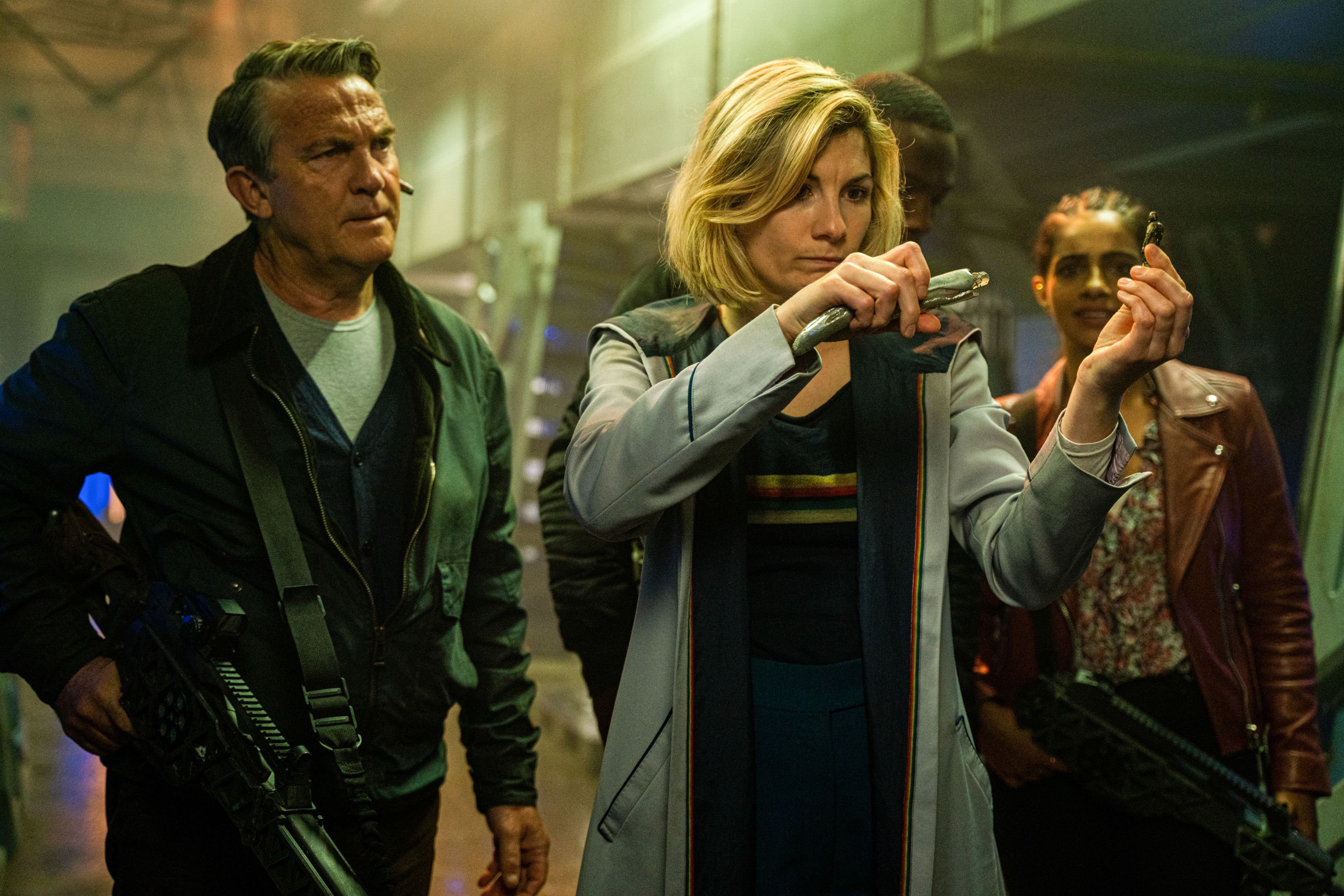The news that in 2022, Doctor Who star Jodie Whittaker and showrunner Chris Chibnall would step down from their respective roles with the iconic BBC sci-fi series isn't a huge shock to any ongoing fan of the show. After all, the upcoming 13th season will be Whittaker's third as the madwoman who travels through space and time in a blue box, and since the show's relaunch in 2005, three seasons has become the magic number for a changing of the guard, give or take the occasional special episode here and there.
That said, when David Tennant and Russell T. Davies announced in 2008 that they would be leaving the series, I was pretty sad about it. Today's announcement comes as a relief — not because of Whittaker's departure, but because of Chibnall's, who as showrunner is ultimately responsible for what has been the most disappointing era of the show's modern incarnation. And the reason why it's been such a letdown isn't hard to figure out: The show never really believed that a female Doctor who could serve as the lead.
Why do I say that? The proof is right there in the makeup of the cast: the modern era of Doctor Who has always kept to the standard formula of the Doctor going on adventures alongside a companion, typically a young woman — an opportunity that made stars of actors including Billie Piper, Freema Agyeman, Karen Gillan, and Jenna Coleman. (Catherine Tate, the 10th Doctor's companion in Season 4, was already a UK comedy star in her own right when she joined the cast, and Pearl Mackie, who accompanied the 12th Doctor in Season 10, frankly deserves more attention.) Meanwhile, when Whittaker was first introduced as the 13th Doctor, she did so after crashing into the lives of Essex residents Graham (Bradley Walsh), Ryan (Tosin Cole), and Yasmin Khan (Mandip Gill), who then became her loyal "fam," game for ongoing travels.
I have no problem with the three companions on an individual level — more inclusion on screen is always valuable to see, whether it be Ryan as a Black man whose struggles with racism were very much a part of the storytelling, Yaz as the show's first South Asian companion whose heritage was heavily incorporated in one of the more interesting Season 11 episodes, or Graham representing a generation often left out of these stories. Ryan and Graham also had a compelling individual dynamic as reluctant family members who became much closer during their time on the TARDIS, and the unconventional nature of this found "fam" was a new dynamic for the show to explore.
But they sucked up the oxygen, is the best way of putting it. The problem is that the typical Doctor Who episode is a stand-alone adventure in a new time period and location, featuring a brand-new supporting cast. This means these episodes require a whole lot of set-up early on, and there's frankly not a lot of screen time to spare on additional character stories. Dropping into that mix the Doctor and a companion (maybe two, if a boyfriend or Captain Jack was along for the ride) worked out fine as a rule. But three companions, all of whom were heavily featured in the plots for these episodes, meant that more often than not, the Doctor had to take a backseat on her own show. Even when the Doctor did get a bit of a storyline focusing on her past, it came largely in the form of longtime nemesis The Master (Sacha Dhawan in this incarnation) shouting at her while she lingered in prison.
Another big indicator comes in the fact that since Tennant took over the role, most seasons of the show have tended to feature what are known as "companion-lite" episodes and "Doctor-lite" episodes — episodes which were basically shot simultaneously, with the core cast split off from each other, for production reasons. Whittaker's seasons have been shorter than those of previous Doctors (10 episodes vs. 12-13), which perhaps eliminated the need for these installments. But the "companion-lite" episodes had a habit of being real showcases for the Doctors in question, with Tennant's performance in Season 4's "Midnight" and Peter Capaldi's work in Season 9's "Heaven Sent" coming to mind in particular. Whittaker never got this sort of showcase. Whittaker deserved one.
Whittaker, in general, deserved better. Chibnall's Doctor Who and Torchwood episodes were never favorites, but I had hope that his work on the critically acclaimed Broadchurch would carry over in some way when he took over as showrunner. Unfortunately, while Whittaker did the very best with the material she was given, bringing a raw earnest hopefulness to the role that made for a nice shift from Capaldi's world-weary take on the character, there was a fundamental lack of trust undermining her time on the show — and thus undermining this show's one core character to the point of irrelevance. It's frankly the sort of cosmic wound it's hard to imagine Doctor Who ever recovering from.
Technically, there's time for me to be proven wrong there, as there's a full season of the show due to premiere this fall, along with some 2022 specials which will lead up to Chibnall and Whittaker's departure. But do I have any faith that the show will learn from its mistakes in that time? No, I fucking do not. That's because on New Year's Day, following the premiere of the last 13th Doctor adventure, it was announced that Cole and Walsh's departures following the 2021 New Year's Day special would be followed by the arrival of a new character played by actor and comedian John Bishop. In the official press release announcing Bishop's casting, Chibnall stated that "It’s time for the next chapter of Doctor Who, and it starts with a man called Dan." Based on the show's track record, that next chapter will probably continue to be focused on Dan, too.
This all brings us up to the question of who takes over as the 14th Doctor, a casting question that will be fraught with rumors for the next several months until a grand announcement is eventually made. The smart money is on a man of color, always a longstanding casting possibility for Doctor Who, and at this point frankly a necessary choice as the show approaches its 60th anniversary. But I'll be much more interested in finding out who will step into the role of showrunner — and if whoever it is will actually let the Doctor be the star of the show.
Doctor Who Season 13 is set to premiere this fall on the BBC and BBC America.



